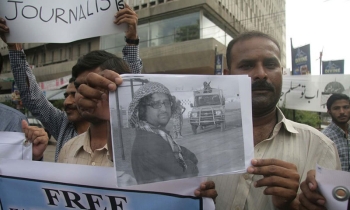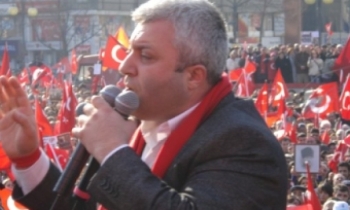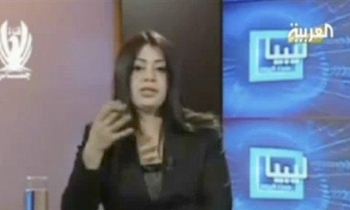(December 11, 2005) -- Where will it end, and when will reporters pay with their jobs? First we learn that Bob Woodward failed to tell his editor for years about his role in the Plame/CIA leak case. Today, we find out that Time reporter Viveca Novak not only kept her editors in the dark about her own involvement, but even had a two-hour chat with the special prosecutor about it well before telling her superiors.
At the end of her first-person account at Time online today, we are told in a brief editor's note that she is by "mutual agreement" now on a "leave of absence." Has she been taken to the woodshed and, if not, why not?
Woodward, of course, still has his job at The Washington Post. And Judith Miller, who withheld vital information about her role in the Plame case from her editors, was allowed to walk away with a nice severance package, and a probable book deal.
After reading Novak’s account, I won’t even begin to make sense of its importance to the case. There are plenty of better informed, or in any event less careful, Plameologists out there who may have already weighed in. But keep in mind that the key is exactly when Novak spoke with Karl Rove’s attorney, Robert Luskin. This might even determine if Rove is indicted. Exactly when Luskin spoke with Novak suggests whether Rove had lied to special prosecutor Patrick J. Fitzgerald about his conversation with Cooper, or honestly forgot about it until Novak nicely helped him recall it (via Luskin).
In any case, let’s stick to the journalistic issues here, which might explain why the reputedly capable but obviously deeply flawed Novak is now on a sudden "leave of absence."
The most amazing revelation is that in late-October, long after she blundered in telling Luskin that the word around Time (obviously a reference to Cooper) was that Rove had a Plame problem, the lawyer informed her that the special prosecutor might want to speak to her. Does she tell her editor? No.
Later Luskin tells her that Fitzgerald does indeed want to grill her, although perhaps not under oath just yet. She hires a high-level lawyer. Surely she tells her editor now? Au contraire.
Then, on Nov. 10, she meets with Fitzgerald for two hours to discuss the conversations with Luskin. Of course she tells her editor after that? Sadly, no. Not only that: She keeps reporting on the Plame case, including the new Bob Woodward angle!
Finally, on Nov. 18, her lawyer calls to inform her that Fitzgerald does indeed want her to testify under oath. "I realized that I now needed to share this information with Jay Carney, our Washington bureau chief," she writes online today. "On Sunday, Nov. 20, I drove over to his house to tell him. He then called Jim Kelly, the managing editor. Nobody was happy about it, least of all me."
Oh gosh, imagine that.
Then, as she describes the substance of what she revealed (or, mainly, her struggles to recall any specifics), one has to wonder about her journalistic capabilities.
The first red flag, to repeat, is telling Luskin anything about what anyone knew at Time about her client and this incredibly sensitive case.
Then there’s the question of how many times she talked to Luskin about it. Well, she has some calendar entries but they "weren’t entirely reliable." She didn’t take any notes, during or even after the meetings. No wonder she cannot pinpoint the meeting when she made the all-important disclosure that supposedly jogged poor Karl’s memory about his Cooper chat. When she talks to Fitzgerald she can only venture a wild guess, as she admits.
Then Fitzgerald asks her about specific dates. Lo and behold, she turns to her calendar again and one of Fitz's ideas, March 1, 2004, checks out. Here’s her explanation: "I hadn't found that one in my first search because I had erroneously entered it as occurring at 5 a.m., not 5 p.m."
Reminder: This is a Time magazine reporter and book author.
Now, she admits, this made her feel physically ill in contemplating her upcoming testimony under oath, and no wonder: "The problem with the new March date was that now I was even more confused -- previously I had to try to remember if the key conversation had occurred in January or May, and I thought it was more likely May. But March was close enough to May that I really didn't know. I don't remember’ is an answer that prosecutors are used to hearing, but I was mortified about how little I could recall of what occurred when."
At one point in the piece, Novak says she wishes she could have a "do over," and that she had told her bureau chief about all this earlier. Time magazine: Your move.
Greg Mitchell (gmitchell@editorandpublisher.com) is editor of E&P and author of seven books about history and politics.









